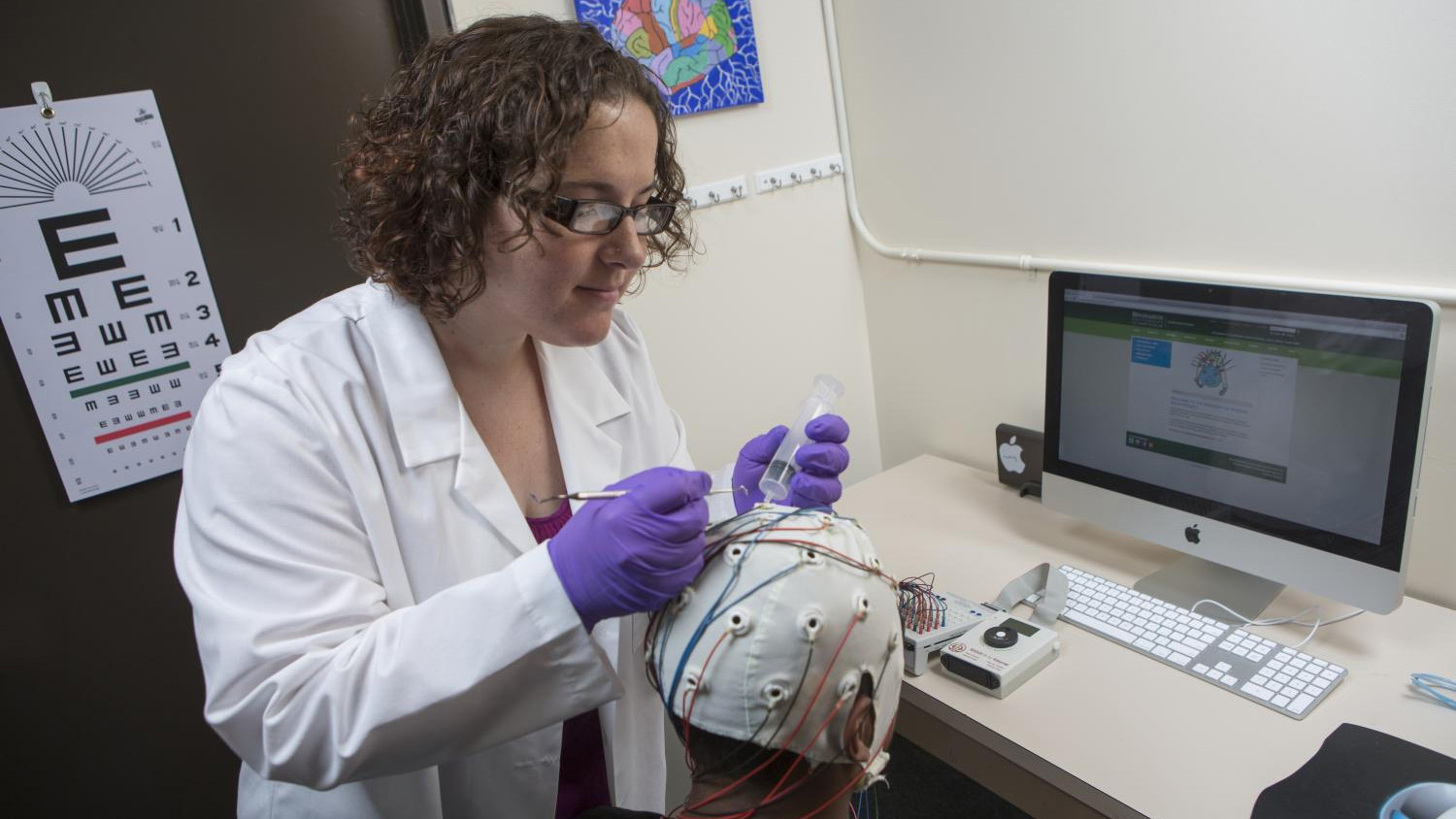Forget fingerprints: Your brain waves identify you with 100% accuracy
Passwords are out, brain scans are in

The way you respond to different stimuli is totally unique - so much so that it can be used to differentiate your brainwaves from anyone else's.
That's the conclusion of psychologists from Binghamton University, who have developed a system to identify people from their "brainprint". The accuracy level? An impressive 100 percent.
In 2015, a team lead by Sarah Laszlo and Zhanpeng Jin recorded the brain activity of 32 people when they read different words and then attempted to identify them from that data. The resulting paper showed accuracy levels in the range of 82 and 97 percent.
CEREBRE
Now, the researchers have expanded their experiment - switching to images instead of words, and growing the pool of participants to 50. They call their new system the Cognitive Event-RElated Biometric REcognition protocol, or CEREBRE for short.
In it, the 50 people were fitted with an electroencephalogram headset and shown 500 pictures of objects designed to elicit unique responses. Among the images were a slice of pizza, Anne Hathaway, a boat, and the word "conundrum". In each case, the brain's response to the picture was recorded.
The participants were then anonymised and the shown the pictures again, with a computer system attempting to figure out who it was. It was able to do so correctly in every case.
A Big Deal
"When you take hundreds of these images, where every person is going to feel differently about each individual one, then you can be really accurate in identifying which person it was who looked at them just by their brain activity," said Laszlo.
Sign up for breaking news, reviews, opinion, top tech deals, and more.
He added: "It's a big deal going from 97 to 100 percent because we imagine the applications for this technology being for high-security situations, like ensuring the person going into the Pentagon or the nuclear launch bay is the right person. You don't want to be 97 percent accurate for that, you want to be 100 percent accurate."
The details of the system were published in the journal IEEE Transactions on Information Forensics and Security.
Age simulation suit: what it's like to go for a run when you're over 70.
